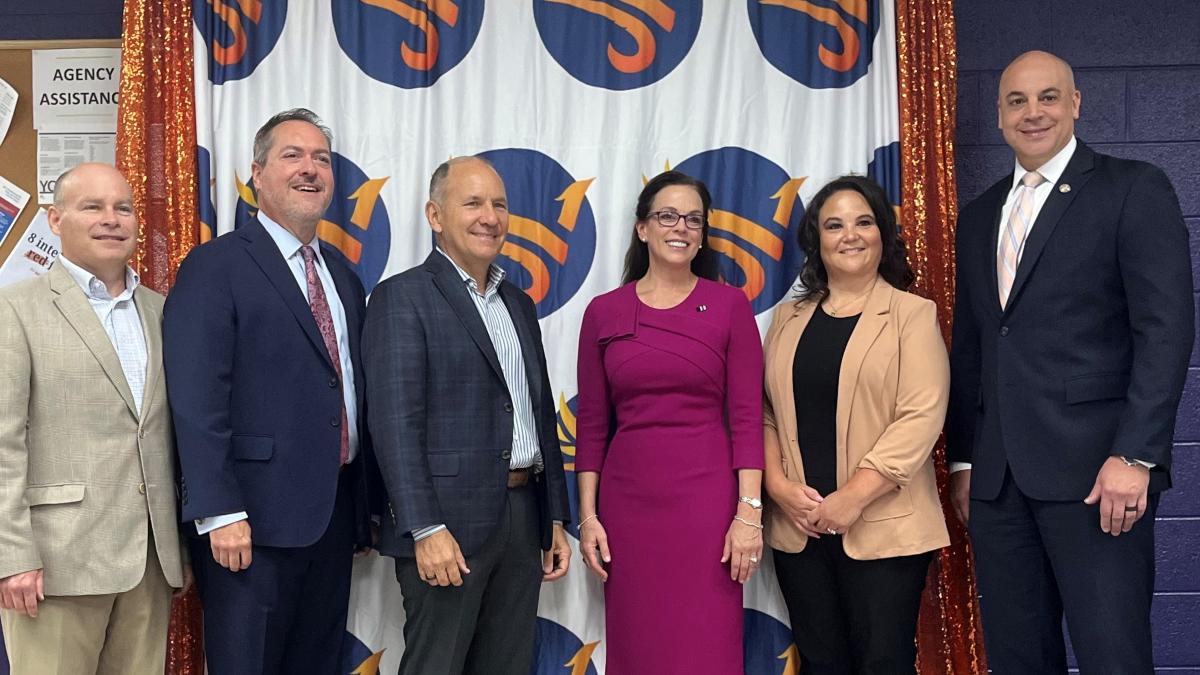U.S. Representative Lloyd Smucker, PA Attorney General Dave Sunday Back Bipartisan Workforce Reentry Efforts

Elected officials share support for Rep. Smucker’s bipartisan Workforce Reentry Act at York County Reentry Opportunity Center press conference.
York, PA – Today, U.S. Representative Lloyd Smucker (PA-11) and PA Attorney General Dave Sunday held a press conference at York County’s Reentry Opportunity Center to highlight support for Rep. Smucker’s Workforce Reentry Act, legislation that would strengthen workforce reentry programs intended to reduce recidivism and help formerly incarcerated individuals find dignity in work.
The Workforce Reentry Act was passed with bipartisan support in the U.S. House of Representatives last congressional session and was reintroduced by Rep. Smucker in February 2025.
The legislation would improve federally funded reentry programs—specifically the Department of Labor’s Reentry Employment Opportunities (REO) program—and support efforts to strengthen workforce adaptability for formerly incarcerated individuals into high demand occupations. This bill would increase oversight and evaluation of existing programs to ensure recidivism prevention efforts remain successful.
Rep. Smucker and Attorney General Sunday were joined by York County President Commissioner Julie Wheeler, Lancaster County Workforce Development Board Executive Director Anna Ramos, and York County District Attorney Timothy Barker.
The press conference took place at York County Reentry Opportunity Center (The ROC), a community driven organization that has shown great success in decreasing recidivism and helping formerly incarcerated individuals find work.
U.S. Rep. Lloyd Smucker on the Workforce Reentry Act:
“The Workforce Reentry Act is about second chances. It’s about making sure that when someone has served their time, they can return as a contributing member of society.
“It’s about strengthening families, reducing crime by making a meaningful reduction in recidivism, and meeting the workforce needs of employers who are desperate for reliable, motivated workers.
“I’ve seen firsthand how connecting individuals to work can change lives. Prior to serving in Congress, I owned and operated a construction firm, which participated in work release programs that were successful in helping those individuals find full-time employment.”
“It is about fairness—because every person deserves the dignity of work and the opportunity to succeed.”
U.S. Rep. Lloyd Smucker on addressing recidivism:
“When we connect individuals returning to society with meaningful work, to skills development, and to mentorship—we don’t just help them, we make our communities safer and our economy stronger.”
Pennsylvania AG Dave Sunday on support for the Workforce Reentry Act:
“Employment has proven to be a powerful tool for successful reentry, as a job offers not only a source of income, but a sense of pride and identity.
“I commend our legislative and community leaders, and the employers, who embrace initiatives aimed at providing opportunities to those who deserve them.”
The Workforce Reentry Act:
- Increases accountability and transparency by holding programs accountable for Workforce Investment and Opportunity Act (WIOA) performance outcomes on employment, earnings, and credential attainment.
- Expands awareness around "what works" by requiring an independent evaluation and the dissemination of best practices, encouraging states, localities, and non-profits to pursue evidence-based approaches to ex-offender reentry into the workforce.
- Builds long-term success by requiring grant recipients to provide a 25 percent match of funds and a plan to continue effective programs with non-federal funds after the grand period concludes.
Background:
The Workforce Investment and Opportunity Act (WIOA) permits “research and evaluation” of the Reentry Employment Opportunities program and measures recidivism prevention program outcomes.
Approximately 600,000 men and women leave prison each year and return to communities across the country.
According to a Bureau of Justice Statistics study on recidivism across twenty-four states, “66 percent of prisoners were arrested within three years and, 82 percent were arrested within ten years.”
Finding and maintaining a job for one-year post-release is associated with a 16 percent recidivism rate over three years, compared to 52 percent for those who do not stay employed.
Formerly incarcerated people face an unemployment rate of nearly 30 percent—higher than the national employment rate has ever been.
# # #